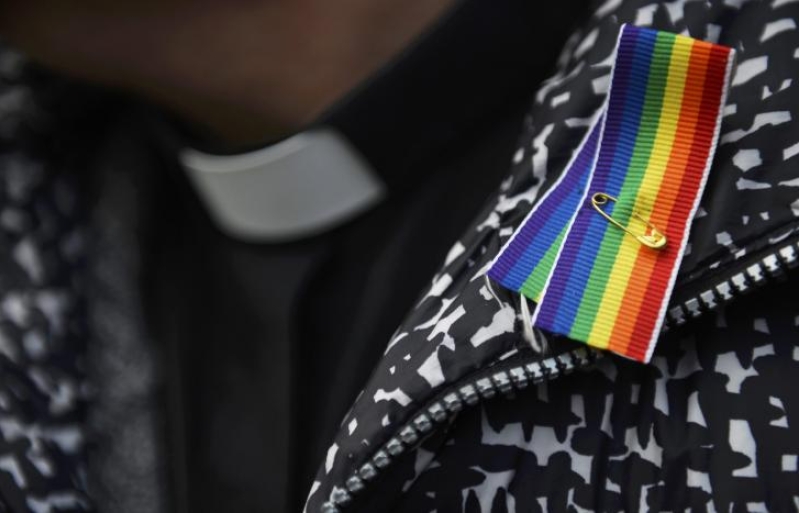
In an effort to be more "inclusive," three Cambridge University colleges are holding special new chapel services for gay and transgender individuals to create a "safe sacred space" and show that Christianity can be welcoming of anyone, regardless of "sexuality or gender identity."
Reverend Andrew Hammond, chaplain at the college, told the MailOnline he believed Church teaching needed to change on controversial issues because what mattered was the "quality of the love, not the gender of the lovers."
Thus, he is holding three "inclusive" services for the first time aimed at helping lesbian, gay, bisexual and transgender (LGBT) Christians to "encounter God."
One service, held recently at the King's College Chapel, involved the congregation "sitting on rugs on the floor and listening to trendy relaxing music in a bid to break with tradition," notes the report.
Hammond told student newspaper Varsity he came up with the idea after being invited to perform the hymn Amazing Grace with drag queen Courtney Act at a student event earlier this year.
He said he was "moved" by the positive response and was inspired to "do something that was very, very different, but still cohered with the general values of the place."
"I've been ordained for ten years, but I've spoken freely in any context except in the pulpit about how I think the teaching should change, particularly on sexuality and gender identity," he said.
"I finally decided to nail my colors to the mast at the beginning of this term. It's the quality of the love that matters between people, not the gender of the lovers."
He added that while the response from students has been overwhelmingly positive, he criticized conservative students for having views that "can give you the heeby-jeebies." Some students, he said, were "on his sofa weeping" by his attitude toward sexuality and gender.
Trinity and St John's colleges have announced they are also holding similar events; Reverend Carol Barrett Ford said she plans to hold an "Open Table" service to "actively promote inclusion in the Chapel."
She described the service as "relaxed and informal Eucharistic service" which would provide a "safe sacred space" and might also contain "poetry, music, video clips and/or silence."
The initiatives come after the Church of England advised teachers to allow and encourage children to explore their gender identity. In a guidance issued earlier this month, the Church's education office told almost 5,000 schools that boys should be able to wear high heels or a tiara at school, while girls should be able to wear boys' clothes.
"Children should be at liberty to explore the possibilities of who they might be without judgement or derision. For example, a child may choose the tutu, princess's tiara and heels and/or the firefighter's helmet, tool belt and superhero cloak without expectation or comment. Childhood has a sacred space for creative self-imagining," notes the guidance.
While LGBT campaigners applauded the move, Conservative Christian activists, including Andrea Minichiello Williams of Christian Concern accused the church of pursuing "an agenda that runs counter to the church's teaching."
Piers Morgan, who co-hosts ITV's Good Morning Britain, also condemned the new rules as a dangerous "fad."
"I've got a six-year-old girl, she doesn't know what gender identity is, yet teachers are now asking a five-year-old child: 'How are you feeling today? Do you feel male or female?'" Morgan said. "It's not about judgment, it's about having some sort of boundaries."
He added that children needed "boundaries" instead of a "free for all" when it came to identity, and pointed out that soon, people will be permitted to identify as whatever they please.
"You know what...you can identify as a giraffe if you want," he said. "You know what, we're all going to be fluid. We're all going to be giraffes."






